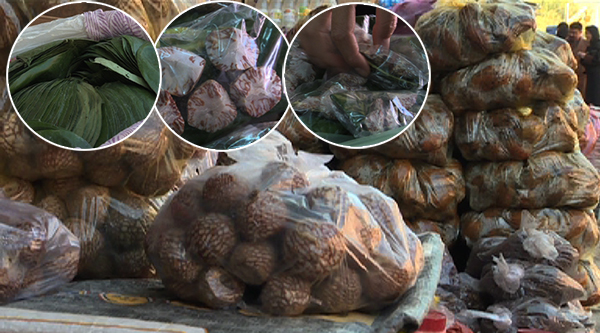 Doma or betel nut is a key part of Bhutanese culture. It’s been consumed widely by many for centuries. But doctors warn betel nut chewing comes at a terrible cost. It causes cancer, leading people to an early grave.
Doma or betel nut is a key part of Bhutanese culture. It’s been consumed widely by many for centuries. But doctors warn betel nut chewing comes at a terrible cost. It causes cancer, leading people to an early grave.
The nuts harvested from areca palm are mostly consumed in a package called quid. It is a mixture of the nut, slaked lime, betel leaf and other flavourings including cardamom.
Dr. Phub Tshering is an ENT and Head Neck Surgeon with the National Referral Hospital. He says arecoline, an odorless oily liquid substance in areca nut, has been proven to be carcinogenic, a cancer causing agent. “What arecoline does is once a person chews the areca nut, an active component is released, which induces cell turnover and causes mutation,” said Dr. Phub Tshering.
“It induces certain receptors in the body, which leads to cancer. But before that, it induces certain change in the mouth, which is called premalignant condition.”
Premalignant condition is a state of disordered morphology of cells that is associated with an increased risk of cancer. If left untreated, it can lead to cancer.
Besides cancer, areca nut has been linked with other diseases. “There are epidemiological studies, not hardcore research but epidemiological studies, which say that areca nut is associated with metabolic syndrome such as hypertension, diabetes, some arterial problem. It increases stiffness of arteries,” said Dr. Phub Tshering.
At the two-day cancer prevention programme workshop held in Thimphu, Dr. Phub Tshering called for a consistent effort to curb the centuries old habit of doma chewing. This would require an increased advocacy on the health impacts and campaigns to discourage betel nut chewing.








